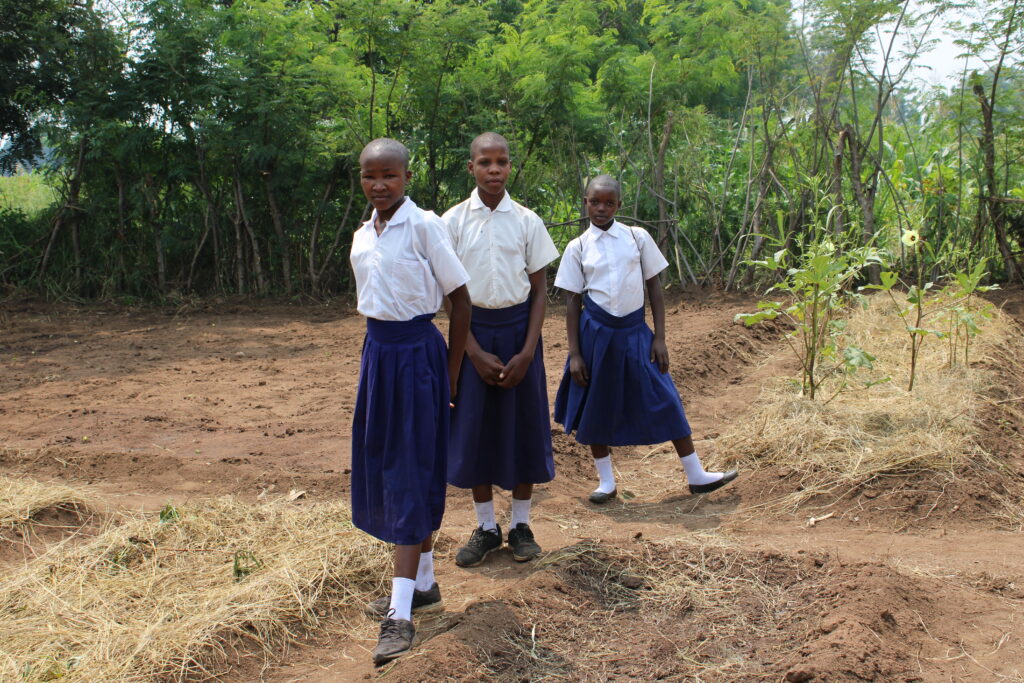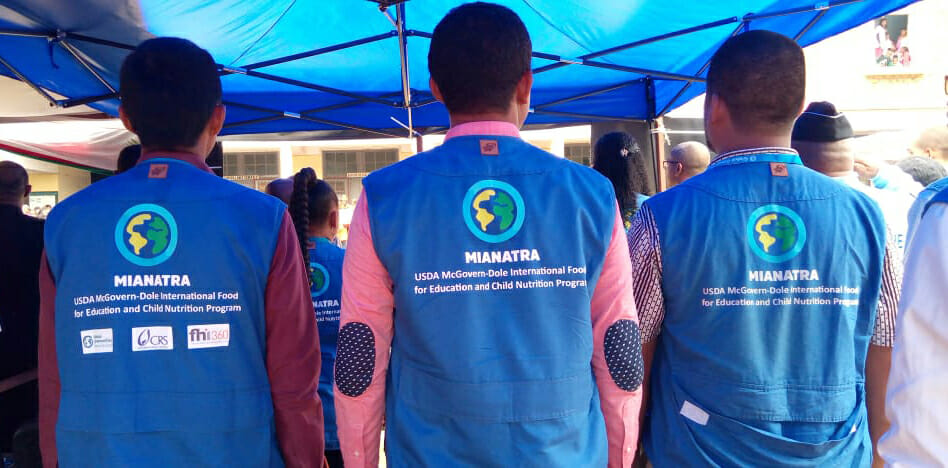Madagascar conjures images of vibrant ecosystems with plant and animal life that cannot be found in any other location across the globe. However, while rich in biodiversity, Madagascar is one of the poorest countries in the world with more than three-fourths of the population living below the poverty line.
Climate change has also heavily impacted Madagascar. Due to shifting weather patterns, the country has experienced prolonged drought for the past four years. Particularly in the southern region, food supply has diminished and plunged the country into food insecurity and devastating chronic malnutrition. In 2021, UNICEF predicted that malnutrition among children under five had quadrupled in the past year.
Global Communities is working to provide much-needed support to the hard-hit Malagasy community through its integrated school feeding approach. This multidisciplinary, student- and community-focused approach is flexible and tailored to the unique context of each school and community and improves preschool and primary school students’ learning outcomes by increasing enrollment and attendance rates, enhancing academic performance and improving their nutritional status. Global Communities is working closely with the Government of Madagascar, schools and communities to address immediate hunger through provision of daily nutritious school meals, improved health, water, sanitation and hygiene (WASH) and nutrition practices, and strengthened local capacity to take ownership of school feeding and complementary activities for sustained impact.
Improving Students’ Literacy, Health & Nutrition through School Meals
With funding from the U.S. Department of Agriculture (USDA), Global Communities is leading a consortium of partners including Catholic Relief Services (CRS), FHI360 and Malagasy Mahomby to implement the first McGovern-Dole International Food for Education and Child Nutrition (McGovern-Dole) project in Madagascar. This new five-year project, known as Mianatra (“Learn” in Malagasy), is implemented in close collaboration with the Government of Madagascar and local communities. Over the life of the project, Mianatra will provide 4,020 metric tons of U.S. donated commodities as well as funds to procure locally grown and purchased food to provide daily school meals to an estimated 64,177 preschool and primary school students in 130 schools in Southern Madagascar. Through the provision of daily, nutritious meals, Mianatra seeks to increase enrollment and attendance, particularly for girls, reduce short-term hunger and increase attentiveness.
Mianatra will improve the quality of literacy instruction by distributing school supplies and teaching materials, establishing libraries, producing books and supplementary reading materials, and training teachers, school administrators and school management committees. To improve student attendance, Mianatra will provide daily, nutritious meals and increase economic incentives for parents and families through savings and lending groups. Mianatra will also improve health, nutrition and dietary practices and will increase access to clean water and improved sanitation services through the construction of latrines, hand-washing stations and water points. Mianatra will partner with the Government of Madagascar, schools and communities to develop pathways and a model for school feeding and complementary activities and support the expansion of Madagascar’s National School Feeding program.
130
targeted schools to be reached through the life of Mianatra
64,177
students benefiting from daily school meals by the end of Mianatra
4,020
metric tons of U.S. donated commodities
Our Work in Madagascar
Food Systems
Combating Disease, Improving Nutrition, and Ensuring Healthy Mothers, Children and Adolescents
Resources
Briefs & Case Studies
Addressing Sanitation Market Challenges
Through the Enhancing Water, Sanitation, and Hygiene (En-WASH) program, USAID Ghana is helping to increase access to sustainable and affordable sanitation in six regions of northern Ghana by identifying solutions to motivate the private sector to work towards closing the service delivery gap.
NEWS
Latest stories from the blog

From Commitment to Care: Sustaining Integrated Health and Family Planning Services in Burkina Faso
By Idrissa Derra, Community Health Technical Specialist, INSPiRE Two years ago, the CSPS Urbain de Pô health center in southern Burkina Faso began delivering integrated …
Read More
Menstrual Health Is Everyone’s Responsibility — A Global Perspective on Girls’ Education
By Leonel Arguello, Director, Integrated School Feeding Programs, Global Communities Six years ago, I had the opportunity to visit primary schools in rural Tanzania where …
Read More
World Health Worker Week: A Global Call to Invest in Health Workers
By Abbey Savin Each year during the first week of April, the Frontline Health Workers Coalition – hosted by IntraHealth International, a Global Communities Partner …
Read More
Margaret Odera: Championing Community Health Workers in Kenya
Health workers are the heart of global health security, playing a crucial role in preventing and responding to pandemics, as well as addressing growing threats …
Read More
